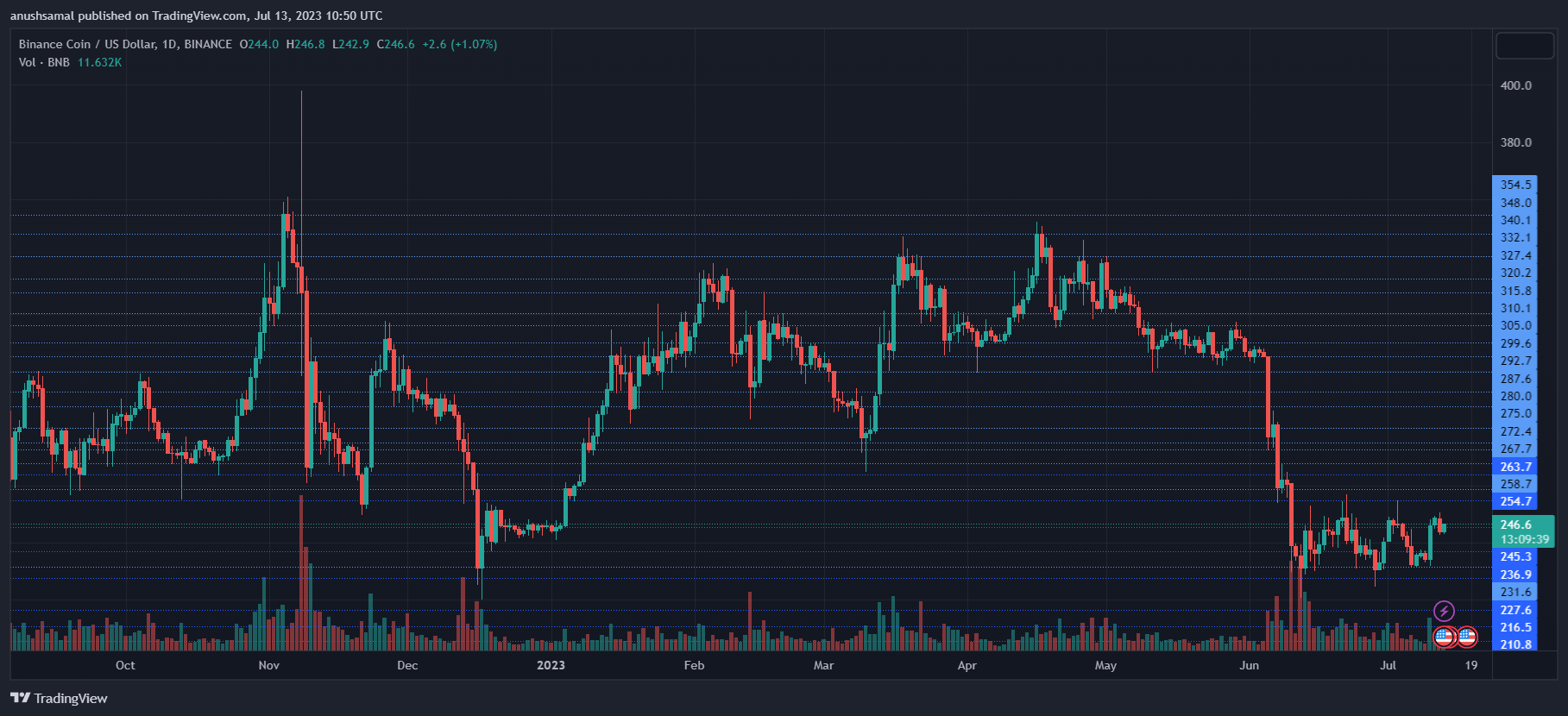What Do We Know About BNB’s ‘ZhangHeng’ Upgrade?
Binance’s BNB Chain is set to undergo the “ZhangHeng” upgrade later this month as the issue of network security continues to be a persistent concern in the cryptocurrency markets. According to the developers working on the project, the upgrade is expected to provide users with significantly improved security features.
As part of this upcoming hard fork, the blockchain will introduce a new feature that will enable it to “halt” the production of new blocks when specific conditions are met.
A hard fork is a type of update to a blockchain protocol that involves a permanent divergence from the previous version of the blockchain, resulting in two separate and incompatible versions of the blockchain.
According to forecasts, the hard fork is expected to take place on July 19th, 2023 at 6:00 UTC when the blockchain reaches block height 328,088,888. The upcoming upgrade to BNB Chain will not create new tokens. However, for the upgrade to work, about two-thirds of all BNB Chain validators will be needed to update their computer systems to be able to process blocks.
Validators are nodes or computers that participate in the consensus process of a blockchain network by verifying and validating transactions and blocks.
What Security Improvements Can Be Expected In The “ZhangHeng” Upgrade
The hard fork is set to introduce the Binance evolution proposal BEP-255. The BEP-255 outlines a technical standard for creating non-fungible tokens (NFTs), and each block in the Binance Smart Chain will track user balance changes and reconcile them to identify any discrepancies. Although the BEP-255 is not directly related to “on-chain asset reconciliation,” it seeks to implement the same mechanism.
Related Reading: Russian Duma Passes Approves CBDC, Real Transactions To Commence Next Month
On-chain asset reconciliation is a feature on the Binance Chain network that allows users to reconcile their on-chain balances with their off-chain balances on Binance.com. This feature helps to ensure that users have accurate and up-to-date information about their on-chain assets. Users will benefit as it will help them to make informed decisions about their trading activities and avoid errors or losses due to inaccurate balance information.
In case of a reconciliation error, a block production halting process will come into effect. This feature is designed to automatically halt the production of new blocks in the event of a serious issue or vulnerability that could compromise the security or integrity of the network.
According to Binance, the action is expected to affect downstream services such as exchanges’ bridges, deposits, and withdrawals. However, the purpose of this feature is to prevent any further transactions or activities on the network until the issue is resolved, thereby improving the overall security and stability of the network.
One of the main changes included in the “ZhangHeng” upgrade is a bug fix aimed at preventing rogue key attacks. This type of security issue occurs when an attacker produces a valid aggregate signature for a transaction, falsely claiming ownership of the private keys.
Overall, the enhancement in the security features in the blockchain may include improvements to the consensus mechanism, upgrade in network encryption and authentication, strengthening of node security, or implementation of more advanced cryptography.
